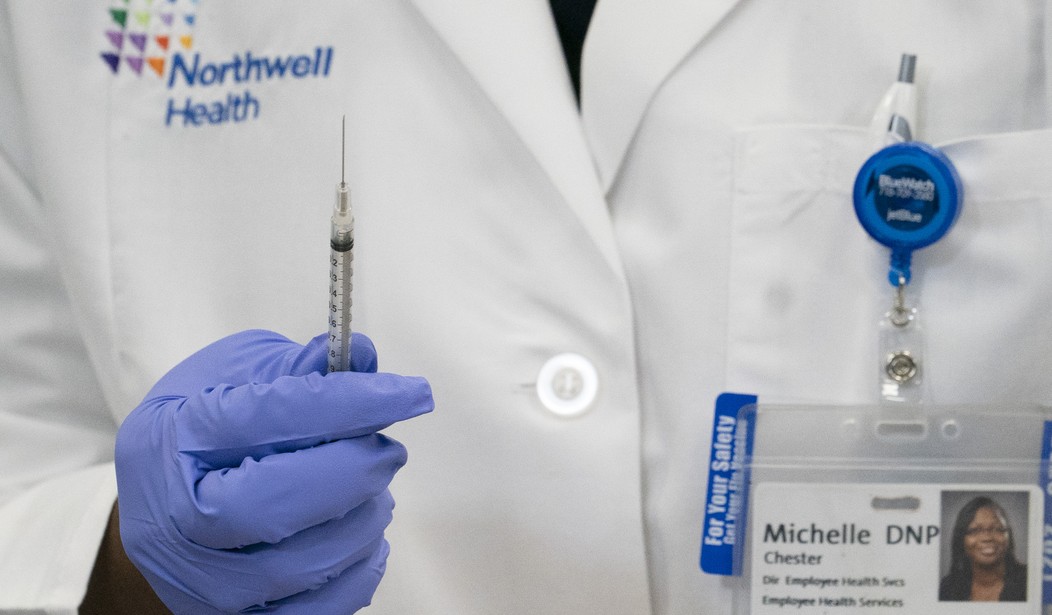Israel’s COVID-19 vaccination program has been on the cutting edge. Currently, nearly 57% of the population has been vaccinated. Their infection rate is so low that they have ditched the vaccine passport program they used to open up many restaurants and venues. Officials also eliminated social distancing rules. The country reports 833,000 recovered patients, which they included in the passport program. Imagine having a health care system that actually acknowledges such an obvious fact.
As the country considered making vaccines available for children under 16, Reuters reported the public health experts were studying a link between the Pfizer mRNA vaccine and a condition known as myocarditis. This condition is an inflammation of the heart muscle that can cause issues with the heart’s ability to function correctly and can cause rapid or irregular heartbeats. It usually onsets following a viral infection. Reuters:
In Israel, 275 cases of myocarditis were reported between December 2020 and May 2021 among more than 5 million vaccinated people, the [Israeli Ministry of Health, Vaccine Safety Department] said in disclosing the findings of a study it commissioned to examine the matter.
Most patients who experienced heart inflammation spent no more than four days in the hospital and 95% of the cases were classified as mild, according to the study, which the ministry said was conducted by three teams of experts.
The study found “there is a probable link between receiving the second dose (of Pfizer) vaccine and the appearance of myocarditis among men aged 16 to 30,” it said in a statement. According to the findings, such a link was observed more among men aged 16 to 19 than in other age groups.
In the mRNA vaccines, the cells in your body are instructed to make proteins from the spike portion of the COVID-19 virus to stimulate an immune response. It tricks your body into having the reaction it would to a viral infection. So, it is plausible that conditions related to viral infections could result. It appears Israeli public health professionals feel this is likely.
The State of Washington also issued a warning regarding myocarditis and pericarditis. The latter is an inflammation of the thin covering over the heart muscle. The state department of health alerted residents to this potential side effect following COVID-19 vaccination in general, not to the Pfizer vaccine specifically. The notification did not note any specific demographic where the problem was occurring.
This warning coincided with a May 24 meeting in which the CDC found the VARES system reported a higher-than-expected number of observed myocarditis and pericarditis cases among 16-24-year-olds. It is important to remember that VARES data is likely an underestimate because it does not involve a mandated reporter. When the CDC viewed another database, called the Vaccine Safety Datalink, the rates were similar to the general population. The difference in the dataset is notable. Even though the datalink gets information directly from health care systems, many people receive COVID-19 vaccines outside of the traditional health system.
Pfizer said it was aware of the observations in Israel, but it insisted that the causal link has not been established. Despite reporting that the link is probable, following the Health Ministry report, a committee approved vaccinating 12-15-year-olds. This approval came despite Israel reporting only a handful of cases a day, with a seven-day average of 20 positive tests as of May 30. Children generally suffer mild if any symptoms from contacting COVID-19. The ministry apparently feels the benefits outweigh the potential risks in this age group.
Given new information on durable natural immunity, even from a mild infection like the one common in children, it is possible to measure for T cell immunity before deciding to vaccinate. This type of immunity can be detected longer than antibodies in many cases and it has proven to be a more accurate measure of immunity than an antibody test alone. Proof of immunity should serve as a substitute in any mandate situation, though parents may need to demand it. Concurrence from a physician should assist in the process.










Join the conversation as a VIP Member